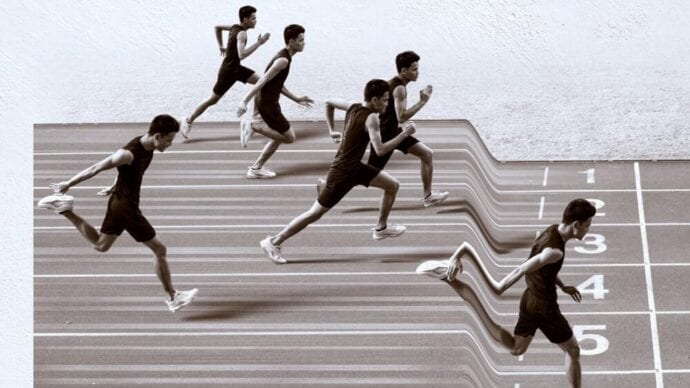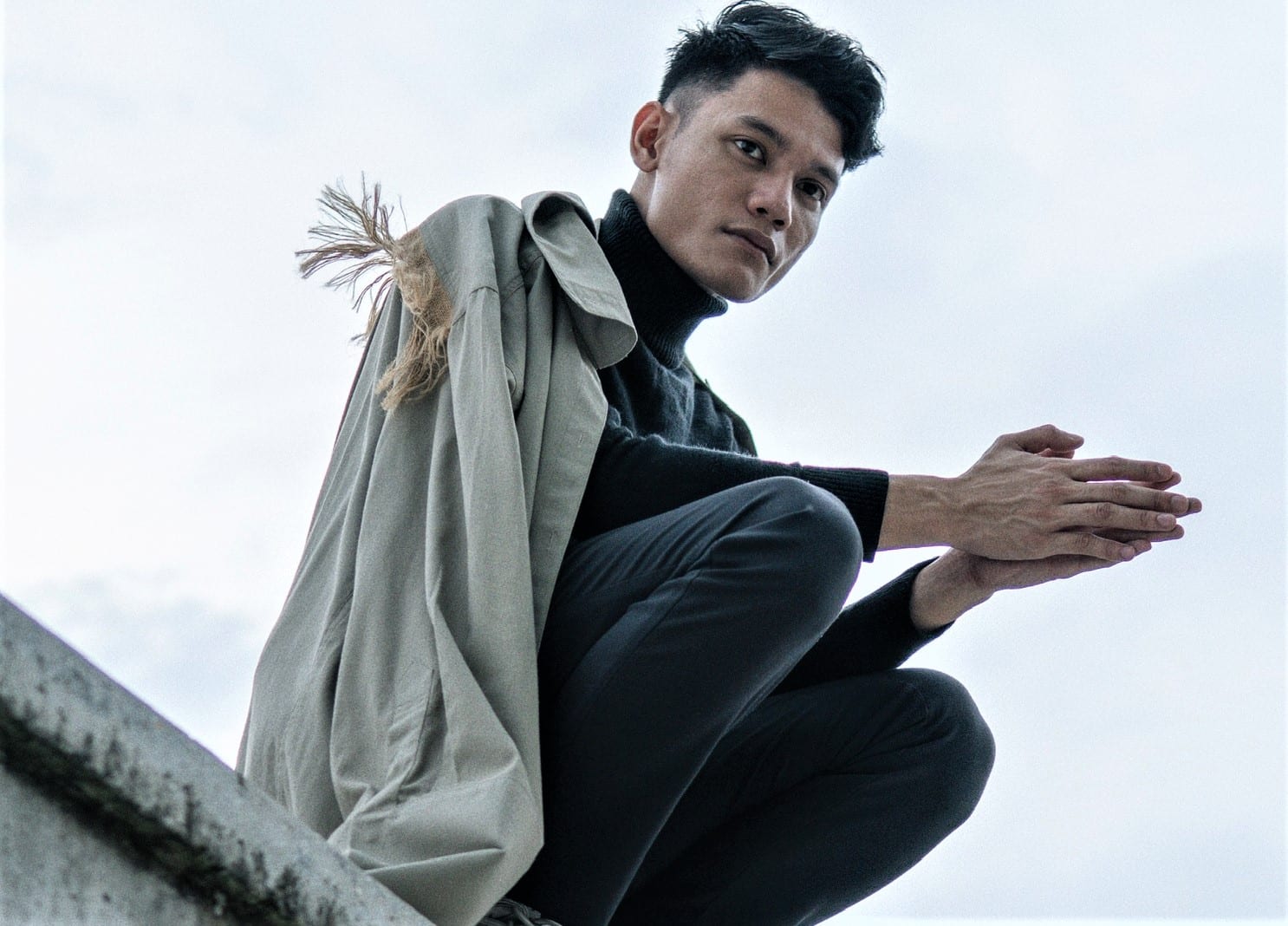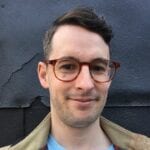Two years ago, alextbh earned the title of “Malaysia’s first queer pop star.” While he never expected to represent a persecuted and criminalized community in the conservative climate of his home country, the 23-year-old R&B musician proudly waves his flag. “Stoop So Low” was alextbh’s first song to reach an international audience when he independently uploaded it to Soundcloud in 2016, and it’s easy to hear why. Set against a woozy electronic backdrop and skittering beats, alextbh channels his feelings of heartbreak into sharp-tongued lyrics: “You switch boys like you switch lanes/ And you don’t know how to give brains/ I hate the sex and your flame is lame/ Don’t pay tax but you still claim.” The path to that song’s breakout success will be inspiring and relatable to any artist working out of their bedroom. In an interview with the Bringin’ It Backwards podcast, alextbh explained how he learned to make music with the most minimal resources. Using an iPad equipped with GarageBand, he taught himself how to produce by watching YouTube tutorials, painstakingly replicating the sound of EDM hits in the same way a guitarist learns to cover “Smoke on the Water.” After graduating from college with a degree in engineering and moving to the Malaysian capital of Kuala Lumpur, his debut live performance consisted of plugging in a USB stick to play his backing tracks while singing live to a crowd of four people. Since then, alextbh has found a far wider audience with the continued success of his songs released online, alongside performances throughout Southeast Asia. This month saw the release of The Chase EP, a lushly produced six-song suite that speaks openly about his experiences using hookup apps, the feelings that emerge from those encounters and his desire for something more. The spirit of his earlier hits remain, but he continues to experiment with musical directions that include stripping it all down to his voice and guitar. In this conversation, alextbh shares thoughts about his influences, Malaysia’s underground queer culture and his predictions for the future.
Your song “Stoop So Low” became your first big success a few years ago, with people responding to its raw, emotional quality as an honest expression of your pain. Have you tried to replicate that natural approach with music you’ve worked on since then?
My mantra is still the same years after that song’s release: throw everything to the wall and see what really sticks. My first-ever studio session was in Copenhagen, and naturally I thought I was gonna be a Swedish pop girl or something. That’s how “No Space” was made. For that song, I wanted the lyrics to be mega catchy, so I pretended that I was feeding all these words in my head into an AI machine and seeing what it spit out. My approach changes whenever I meet new producers or artists along the way, or if I’ve been through new experiences. I’ve now settled on darker soundscapes, paired with really good storytelling. The kind of songs that you enjoy even if you don’t pay attention to the lyrics, but when you do you realize the bigger picture.
How did your songwriting or recording process change for your new EP?
I’ve always wanted to make songs that, sonically, serve as an extension to “Stoop So Low.” Dark R&B pop, minimalist production, sultry vocals—these ideas come into mind. Ironically, the first song I wrote on the EP was “The Chase,” which is the complete opposite since it’s a ballad and it’s mostly the guitars that drive the song, not software synths. I’m glad I managed to build a narrative around that song. This EP also involves a lot of collaboration with other people. I’m so used to doing everything on my own that I was afraid that if I let anyone in on this project, it would go off course. I’m happy that all my producers understand me.
I understand Mariah Carey and Justin Timberlake both influenced you with the way they use falsetto, while you’ve also mentioned James Blake and more recently 100 Gecs as inspirations. How do you hope to differentiate your own music while also integrating what you learn from other artists?
I take a bit of everything from everybody I admire. A bit of Justin Timberlake’s falsettos here, James Blake’s minimal approach to musical production there. At the end of the day these are merely ideas, and it all comes down to how my vocals and production tie everything together. I think that’s why the songs I make are still fundamentally me.
You’ve said that you used to write more gender neutral lyrics to hide the fact that they were about your experiences with men. How did you come to the decision to stop doing that and become more authentic in your songs?
The whole keeping-it-gender-neutral thing happened pretty early-on in my career, and thank god it did because I hate doing that so much. I stopped because everybody was highly supportive of me. I used to fear backlash from my own people because I simply do not have the emotional capacity to handle hate. But to my surprise, everybody was pretty accepting of me from the get go. I’ve felt unstoppable ever since.
How did you first know you were gay?
When I first watched a boxing match and thought that was hot.
Was it hard for you to come out to friends and family members with the conservative nature of Malaysia?
It can be hard sometimes. It’s a very “don’t-ask-don’t-tell” kind of vibe. Some people just refuse to be educated on LGBTQ issues, so I leave them be and go about my life. The idea is to tell them that queer people exist on a spectrum and not everyone has to fit a stereotype, but I let my actions do all the work. Most of the time, people are willing to learn. And to be frank, I’m learning myself. I think that as queer people we tend to develop an “us-against-them” complex too quickly and that can deter people from accepting us. We are all just trying to understand everything around us.
Have you experienced any other kinds of hardship or homophobia since you’ve become a more visible artist?
Apart from a few hate comments here and there, not really. I try to understand who my audiences are and only choose to interact with them. I refuse to give in to hate.
What kinds of legal ramifications are there for queer activities where you live?
You’ll get arrested. And if you’re Muslim, you’ll be whipped and sent to conversion therapy. The police get a kick from seeing us be dehumanized. That didn’t deter us a single bit. The drag scene is more eccentric than ever, and gay events are abundant now. Well, before this shitstorm of a pandemic started, that is.
Conversely, has anyone thanked you for being openly gay and felt empowered to come out themselves because of your music?
Absolutely. That happens like every other day. A couple days ago, someone from Taiwan told me he never really had someone to look up to until now. I feel immensely humbled.
You’ve talked about how The Chase EP is based on a reckless period in your life when you were hooking up with multiple people at the same time, getting a high from finding a brief connection and then ghosting. Has writing these songs helped you reflect on those experiences and how they can affect you or other people emotionally?

I definitely took a step back and looked inward after this EP came out. I’m learning how to be content and accept things as they are—sort of stoic but not quite. I still let my emotions guide me. Like, I wouldn’t mind if I’m in a casual relationship again. But this time around I’ll be more responsible with my feelings and say things as-is.
You’ve also been open about how you’re still addicted to meeting men on Grindr and continuing the chase. Do you feel guilty about that or have you accepted that it’s a necessary part of your life?
Yeah, I kind of just let it happen now. As much as I want to demonize these apps, I can’t. I still need it. It’s how a lot of guys meet in real life. Again, it’s all about being responsible with your actions. If I keep things chill and don’t set any expectations, I’m sure good relationships will come out of it.
How have your live performances evolved since the first time you played for a crowd of four people?
Damn, things have changed a lot since. My first live performance was a DJ set. Now I have dancers and a band with me. I strive to put on a good show. I don’t really dance but I think it helps to contextualize my songs so I enjoy dancing. I love it. I get to connect with all sorts of people.
What are your plans for the future? Have you started work on any other recording projects, and can we expect to see you in a livestream performance any time soon?
I’m definitely working on more stuff. I feel restless, and I think writing songs is my way of not thinking too much about the shitty state of the world. I like doing live performances too, so I still have that going on for me.
What are your predictions for the future of music in a post-pandemic reality?
I think musicians are starting to figure out a way to monetize their online selves. I personally see music as a very physical experience, like I just have to be in a concert to enjoy it. That’s how most artists earn the bulk of their income, too. But online festivals are here to stay. I’m not talking about Instagram Live or Twitch streams—more like the ones Travis Scott and Tinashe put out recently. Virtual reality adds a new dimension to an artist’s performance.


 Why you can trust Xtra
Why you can trust Xtra


